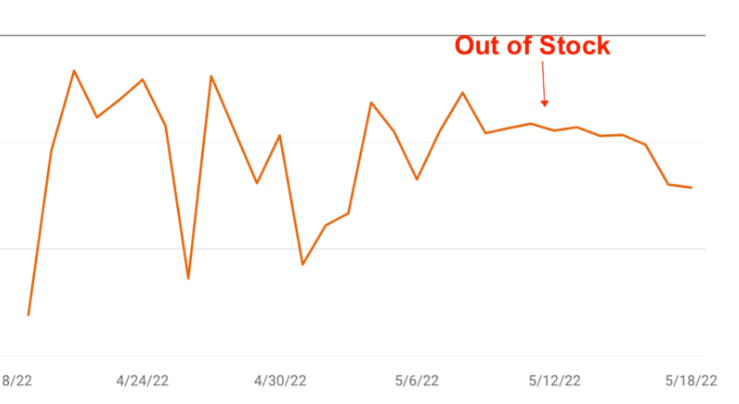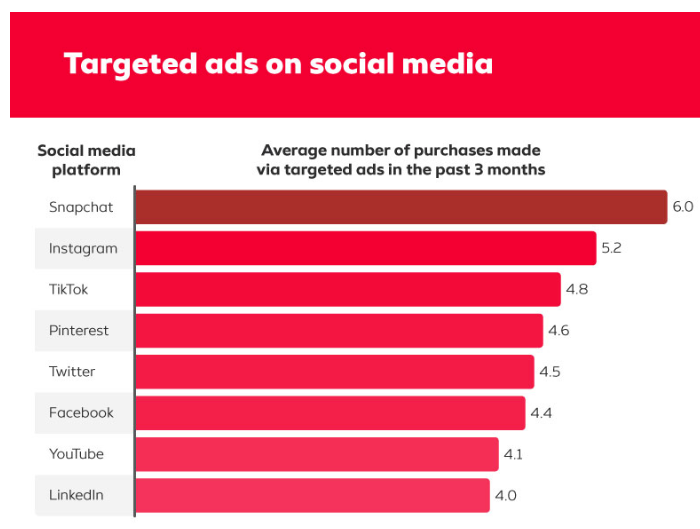Marketing Privacy, CTR and Search Rankings, Ad-Free Social Media

New Apple, DDG Ads Market Privacy
Two effective new ad campaigns market privacy and take aim at online tracking. One, from DuckDuckGo (below), is specifically aimed at Google, while Apple's new spot promotes App Tracking Transparency and email privacy protection. The DuckDuckGo campaign, called "Watching You," features a person looking over the shoulder of several internet users as they search online. It adapts the Police song Every Breath You Take (..."I'll be watching you"). The Apple ad features a dismayed young woman watching a Sotheby's style auction of her own personal data: browsing history, emails, purchases and location data ("It's not creepy, it's commerce"). The DuckDuckGo campaign will also air on the radio.
Our take:
- These ads are both highly effective. They have simple, clear messages and emotional impact. It will be challenging to rebut them.
- Google and Facebook are the main targets, though Apple's ad is more broadly focused. The message is: these companies are deceptive, creepy, exploitative.
- Google and Facebook cannot market privacy in the same way, though Google is trying. The DDG ad will increase brand awareness, even if doesn't drive significant, new adoption.
Revisiting CTR's Ranking Impact
Google has said for years that it doesn't use behavioral signals such as click-through rates (CTR), dwell time or bounce rates as search ranking signals. However, some SEOs have argued otherwise, Rand Fishkin most prominently. Google speakers have called this theory "made up crap." Now Andrew Shotland at LocalSEOGuide pulls together data to argue CTR does in fact matter. The case study involves queries for baby formula and search ranking changes over the course of a month. Sites that were out of stock saw rankings decline, while those with formula in stock saw significant ranking improvements. "Several pages were not ranking at all for these queries, but most of them went from ranking virtually nowhere to ranking on page one/two for these queries." Shotland said he also observed this with queries for hand sanitizer during early 2020.

Our take:
- If in fact Google is using these behavior signals to influence rankings, it could be dwell time rather than CTR. Google continues to deny any such impact.
- Shotland argues brands should take practical steps during times of inventory shortages: landing pages with alerts for in-stock availability, discounts, other messages about efforts to replenish supplies.
- While not discussed in Shotland's article, Google appears to be boosting the local rankings of stores that have real-time inventory.
Social Media Ads: Annoying Yet Useful
There's a spectrum of attitudes toward online privacy: vigilant, indifferent and ambivalent. This largely parallels how people feel about targeted advertising. A new survey from ISP Frontier Communications explored a range of questions, including how people feel about social media ad targeting. The largest group found online ads more "annoying" than "invasive" or "concerning." But "useful" was the second biggest response. This reflects a split between those comfortable with personalized ads, and might even want them to be more so, and those wary or fearful of targeting. Younger users were more positive about targeting, as might be expected. Just over 5% would "pay for improved targeted ads," but 28% would pay $50+ per month to remove ads. A slightly smaller group (27%) refused to pay for ad-free social media.

Our take:
- Among social media platforms, according to this self-reported data, Snap ads drove the most purchases (chart above).
- Google's My Ad Center in an interesting response to the problem of different levels of ad sensitivity among consumers. We'll see if it "works."
- The right approach to targeting: more transparency and genuine control for consumers, with tools that aren't hard to use or difficult to find.
Short Takes
- Search patent guru and early SEO Bill Slawski passes away.
- Google testing favicons in paid search ads.
- Walmart's ad business grew 30% year over year.
- Albertsons testing smart shopping carts with self-checkout.
- Gap the latest retailer to launch in the metaverse (Roblox).
- Google improves diversity of its hiring and management.
- Amazon testing flex-driver delivery for mall-based retailers.
- FTC readies ed-tech crackdown on kids' data harvesting.
- Business messaging at the center of Meta's social commerce strategy.
- US consumers want lower-cost, ad-supporting streaming.
- NY AG investigating social media for "role in Buffalo attack."
- Senate bi-partisan bill seeks to break up Google's ad business.
- More details on Apple's mixed reality headset – not for gaming.
- Think twice about including "near me" in your business name.
Listen to our latest podcast.

How can we make this better? Email us with suggestions and recommendations.

